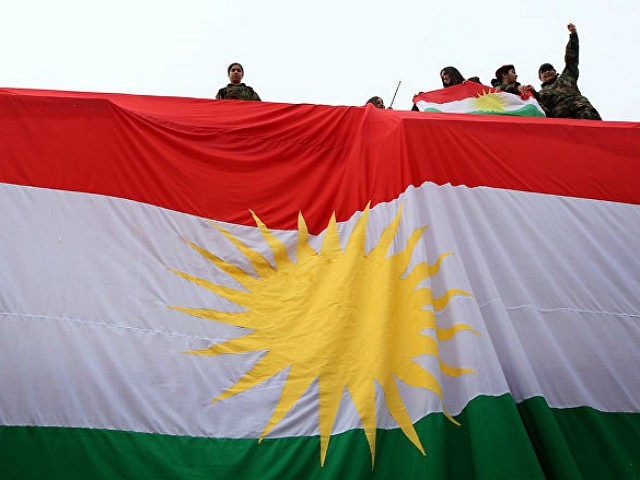The United States is expected to build its biggest consulate building in Erbil, the capital of the autonomous Kurdistan Region in northern Iraq that has been pushing for independence.
“We signed the project for the US Consulate General building in Erbil when Matthias Mitman was the Consul,” revealed Falah Mustafa, head of the Kurdistan Regional Government’s (KRG) office of foreign relations, reports Rudaw. “The US relations with the Kurdistan Region are not new. The US has had a significant role in the making of today’s Kurdistan since 1991.”
Rudaw describes the US move to erect its biggest consulate complex in Erbil as a testament to the strategic importance of Iraqi Kurdistan for Washington.
The Kurdish news outlet notes:
The new US consulate building will cost $600 million, and will be built on 200,000 square meters on Erbil-Shaqlawa Road. The Erbil complex will be constructed by four American and some local companies and will finish in four years… The US initially opened a diplomatic office in Erbil in February 2007, which it later upgraded to a consulate general in 2011.
America’s upcoming consulate complex in Erbil is expected to replace its counterpart in Ciudad Juarez, Mexico, as the United States’s biggest consulate building in the world.
During his first speech on the emergence of the Islamic State (ISIS/ISIL) in Iraq and Syria, President Barack Obama suggested Erbil is a “red line” for Washington without explicitly using the phrase.
“This show of support was decisive in preventing the ISIS from reaching the Kurdish capital,” points out Rudaw.
“The US moved forward to repel the ISIS attacks and showed its commitment to protect the Kurdistan Region when Erbil was under ISIS threat in 2014,” added the KRG’s Mustafa, noting, “Erbil is now a red line for the US because they believe in the future of Kurdistan.”
Currently, the U.S. consulate general building in Erbil is among America’s largest, second only to the American embassy building in the Iraqi capital of Baghdad, which is considered the United States’s biggest mission compound in the world. The Baghdad complex, built on 420,000 square-meters in 2009 at a cost of $750 million, resembles the size of the Vatican.
In response to the ISIS threat, the U.S. established a military base in Kurdistan.
“The U.S. military base will remain here as long as the threat of terror remains and this threat will not vanish in a matter of days,” explained Mustafa.
America considers the KRG to be an effective ally against ISIS.
However, Obama proved to be reluctant to provide much-needed direct military assistance to the KRG, delivering assistance through the central Iraqi government instead.
The Kurds have repeatedly complained that very little, if any, of the U.S. aid sent to Baghdad reaches their fighters. Although US military aid is now being flown directly into the KRG, the deliveries have to be approved by Baghdad.
Neighboring Iran is opposed to an independent Iraqi Kurdistan state, fearing it will emboldened the Kurds within its border to push for the same thing.
The presence of 30 consulates, six honorary consulates, and six foreign trade offices in Erbil “has upset neighboring Iran,” notes Rudaw, adding, “A commander from the Iranian Revolutionary Guard Corps (IRGC) recently expressed his concerns about the increasing number of foreign representations in the Kurdistan Region, claiming that they were aimed at destabilizing the security of Iran.”
“We find it strange for a neighboring country to meddle in our affairs and set paths for us. We respect relations with our neighbors. We hope for mutual relations and understanding with our neighbors,” responded the KRG’s Mustafa.
The United States has also expressed opposition to an independent Iraqi Kurdistan state, a position that adheres to the One Iraq Policy.
However, the Obama administration at times neither endorsed nor supported the KRG’s official call for the establishment of its own state.
“U.S. policymakers have opposed Kurdish independence on the grounds that the breakup of Iraq would spill more Iraqi bloodshed, undermine Turkey’s security, and provoke conflict with Iran,” reported the Council on Foreign Relations (CFR), arguing that an independent Iraqi Kurdistan may provide opportunities for Washington in an unstable region.

COMMENTS
Please let us know if you're having issues with commenting.